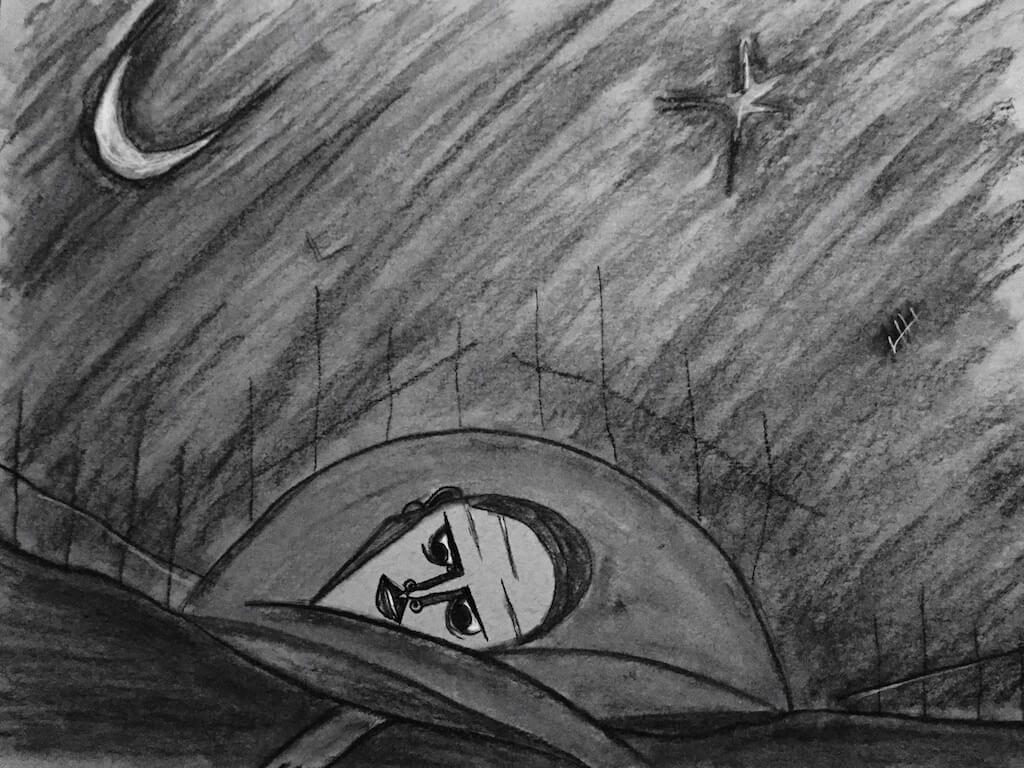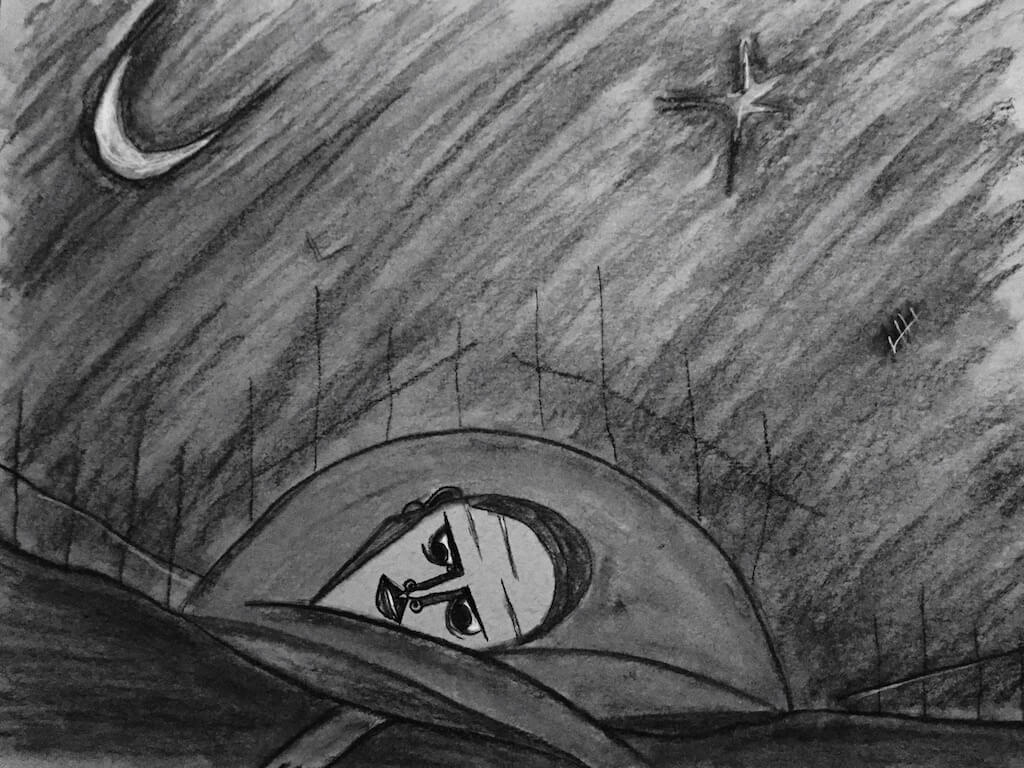 Ted isn’t coming to bed anymore.
Ted isn’t coming to bed anymore.
Susan, who describes herself as “his wife” only with the addition of “long-suffering”, will instead come down to him and ask him what the hell he is doing in the name of God. She will come down the stairs (the old wooden boards and her old wooden knees creaking roughly equally) at 1 a.m. to tell him that he has to come to bed. She will come down at 5 a.m. to ask him why he isn’t in bed. She will come down at 9 a.m. to ask him why he never came to bed, and then point out that she doesn’t care anyway because she’s going to stay with her sister. And then she will go to her sister’s home, having packed enough anger and rage to sustain her for weeks and ask what he is doing in the name of God and her sister will not know, will not even try to answer.
Ted doesn’t go to bed because Ted doesn’t sleep.
It gives him a lot of time to think.
This means that Ted is not surprisedhis wife is going to give up. You can’t live with somebody for so long and not come to appreciate their breaking point.
Instead of sleeping, he is using his computer to click on adverts. When they play he has the sound muted and hears nothing. He’s looking at the screen, but there’s no reason to think he’s reading the text or watching the adverts. A pad of paper and a pen are in front of him. When enough adverts have played, a message pops up in a banner. It is celebratory.
He marks the paper with the pen.
His tallies are four little fence posts standing in a field, crossed through, and they are repeated again and again and again. This page, also the one before it, and on and on for most of the pages of a thick notepad. And on the bookshelf to his left, more and more notepads, the space on the front to write your name crossed through. Who can count that many tallies? You might go mad considering it; perhaps Susan did.
This started when Ted retired and met other retired people at the places retired people go: bus stops after the morning rush but before the lunch rush; cafes after breakfast, when the servers are all bored waiting for the next busy period and take twenty minutes to make a cup of tea; supermarkets loud with couples arguing over the existence of room in the freezer for another half-price lamb shank.
One widowed businessman in particular, George, played bingo purely to find an audience. He’d target a spritely lady and say three things: first, that he did not know how to play bingo and please could she explain?; second, that he’d sold his company and was time- and cash-rich but company-poor (he would laugh at this pun); third, that he was setting up a charity because he did not want to leave all his money to his feckless children.
Ted had been part of the audience once. George mentioned how keenly he felt the selfishness of his (very wealthy) self-employed life, and that now it was time to help those more needy—excepting, haha, of course, his own feckless children. Little better than criminals . . .!
That afternoon Ted won the big cash prize. He took the £200 to Oxfam to ask exactly how many people it would help. Then he asked if there was anything he could do tomorrow, when he had no money.
So now Ted clicks on his adverts. When he’s watched enough, the banner tells him that one more child has a day’s supply of rice, or water, or medicine, or schooling. He likes the schooling best: he once wrote “f you give a man a fish . . .” at the start of one of his tally pages.
When his finger hurts from clicking, he looks for petitions to sign. Last Thursday he woke up Susan to tell her about the steep cost of malaria tablets, of the greediness of pursuing profit over saving lives. She waited for him to stop talking in order to ask: “So, are you coming to bed?”
He watched her until they both gave up waiting on an answer.
***
The week after she leaves something happens in his brain. Lack of sleep, lack of food, lack of hygiene. Months of staring at that screen in the dark.
The result is that, while Ted is not sleeping, he is still dreaming.
There is a storm, directly overhead. The power goes out.
For a time he still clicks. The adverts still appear. They are of smiling children who thank their Uncle Ted. The banners are more frequent than ever. They say fantastical things: whole families rescued, whole villages built, whole countries delivered from famine and disease and conflict.
It doesn’t take long for him to save the world; he stops when his clicks are buying candy for the feckless children of local ex-businessmen.
When he gets up there is dreamwash over everything, oil-slick spills of colour. The house is as it used to be: busy with children and full of second-hand things. Christmases happen, birthdays happen, funerals happen, all at the same time and separately. Only one thing is the same each and every time. Not always the same lights, not the same food, not the same people, not the same gifts, not the same noise: what is the same is that he is always thinking that there is not enough. He works all day and he loves his family all night and there is not enough. There is no-one clicking on adverts to give them more, so they must always have a little less than everyone else seems to.
Ted floats up the stairs, moving in a straight diagonal line without his feet touching the carpet.
The bedroom curtain is open. The rain and the moon and the lightning give everything a ghostly luminescence. The dreamwash magnifies it, casting muted rainbows.
Susan is in bed. She is as young as she was when she first loved him and as old as she will ever be, and so is he.
He holds her and he manages one word: “Sorry.”
It is her turn to say nothing. Tonight the silence fills his heart until it bursts.
END
TL Krawec studies his dreams for diamonds but finds only coal.


